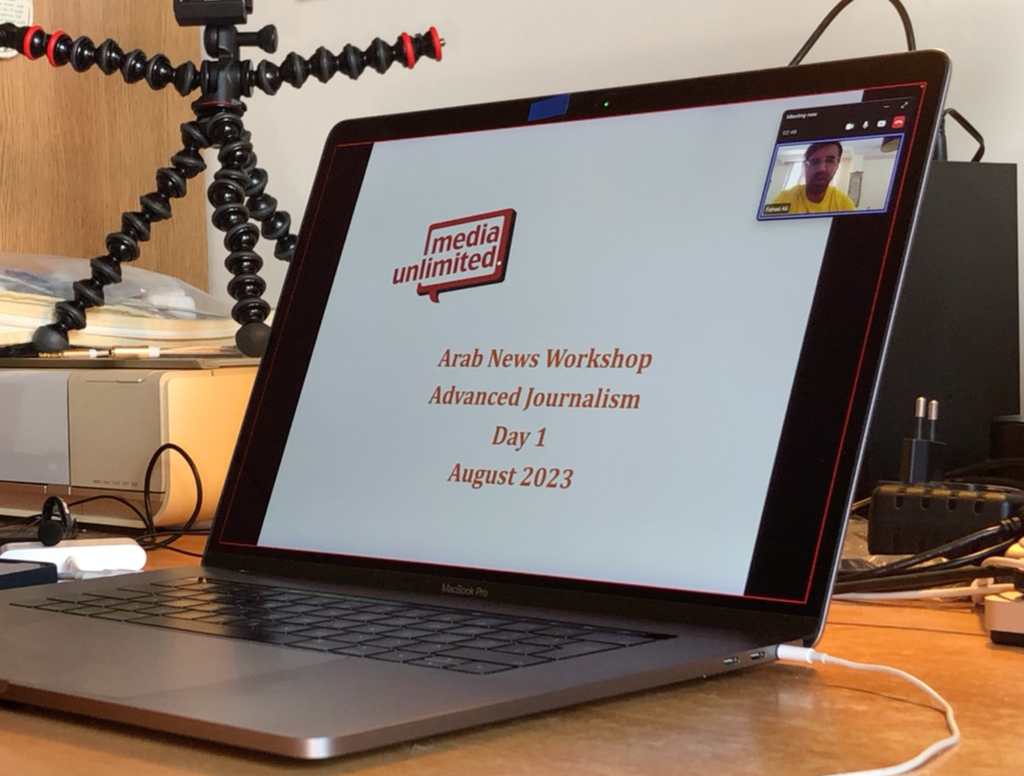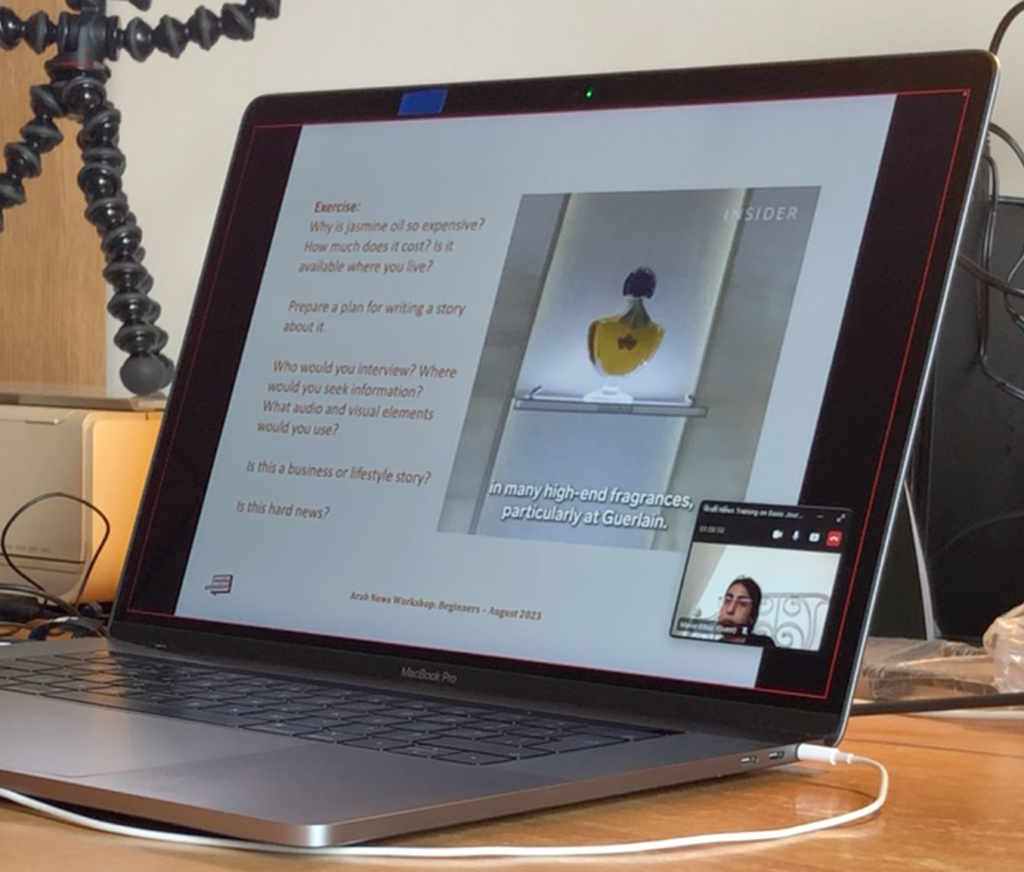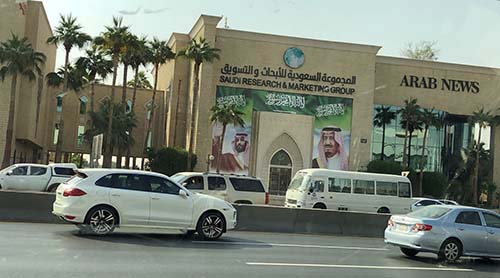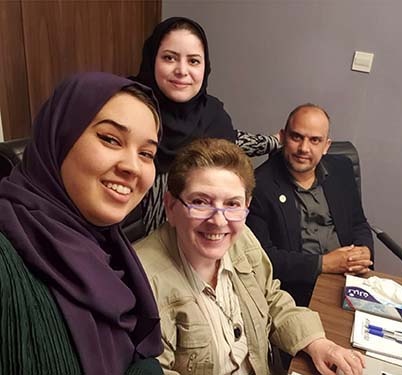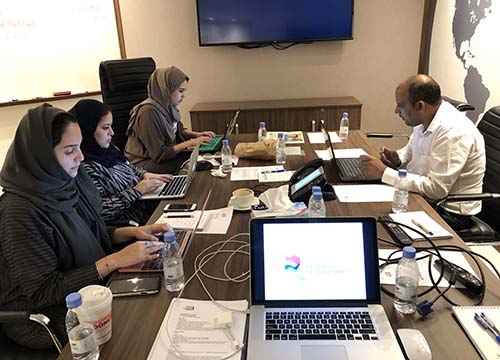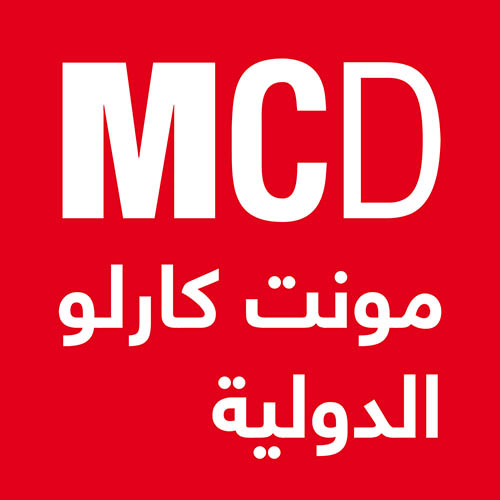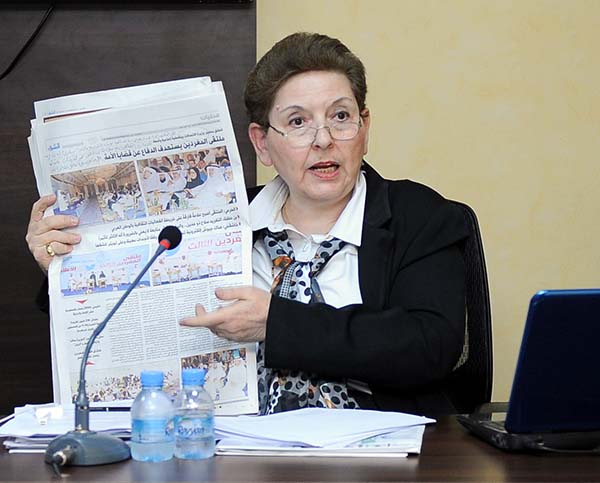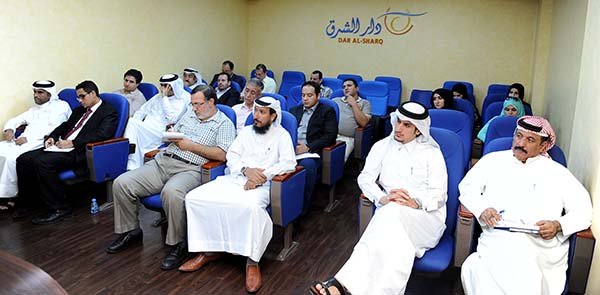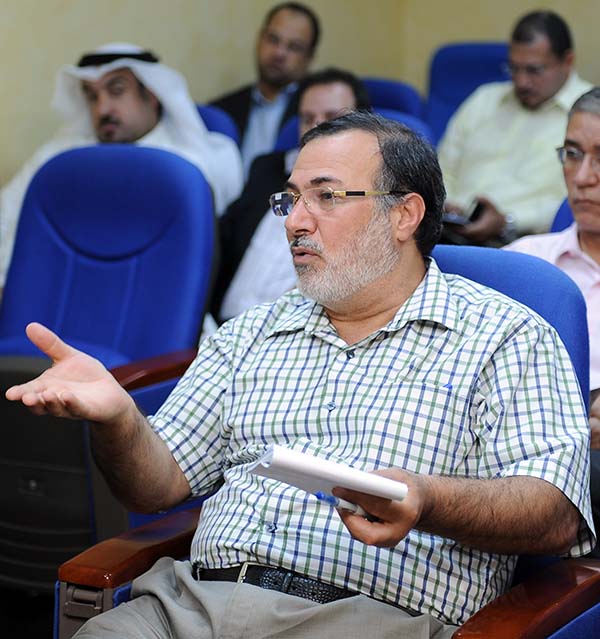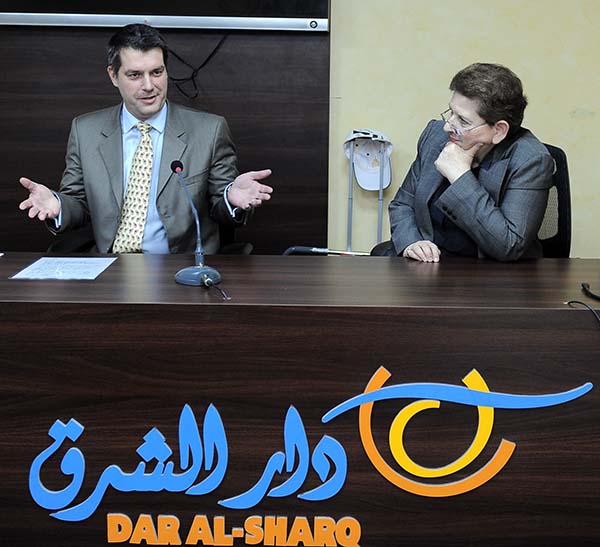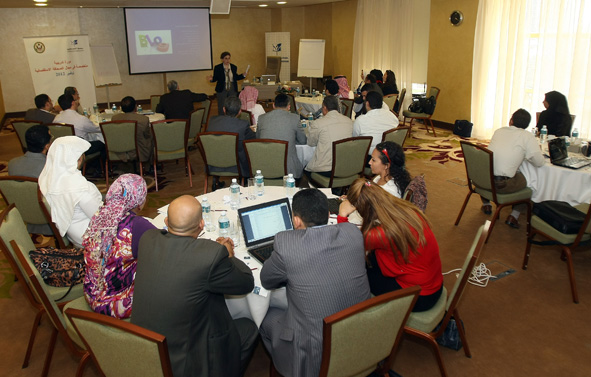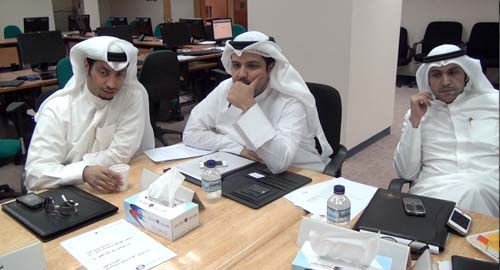Media Unlimited director Magda Abu-Fadil helped Arab News editors and managers navigate the choppy waters of distributed newsrooms brought on by the coronavirus.
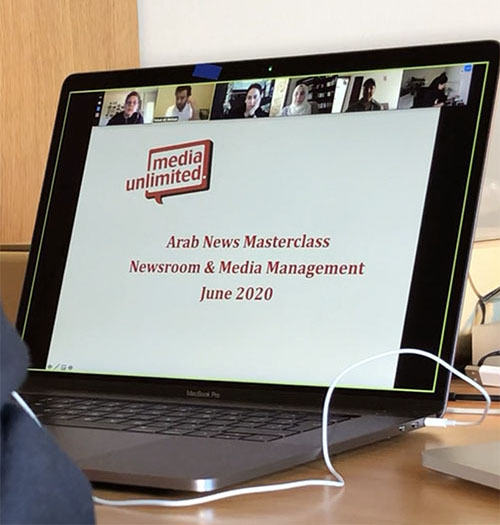
Newsroom & Media Management masterclass for “Arab News” journalists
In two intensive virtual June 2020 masterclasses on “Newsroom and Media Management,” she discussed how participants from the Saudi newspaper’s Riyadh, Jeddah, Dubai, Islamabad and London bureaus can maintain productivity while physically separated from their traditional desks and beats.
The key is good management of distributed teams in various locations and time zones through strong communications, clear duties, “deep listening” to staffers, and proper coordination among various editorial, production and managerial components.

Shifting from news desks to news hubs
It’s also important to look out for staffers’ physical and mental well being, she said, notably in extended lockdown situations that can take a toll on their psyche and productivity, to say nothing of the pressure of being connected at all hours due to guilt or looming deadlines.
Drawing on the “Fathm Distributed Newsroom” model, Abu-Fadil spoke of handling editorial, technical and management-specific virtual meetings to keep the newspaper running smoothly but cautioned against virtual video-conference overload.
She showed a segment of a World Editors Forum webinar on how newsrooms are coping with the Covid-19 crisis that has forced many journalists to work mostly from home.
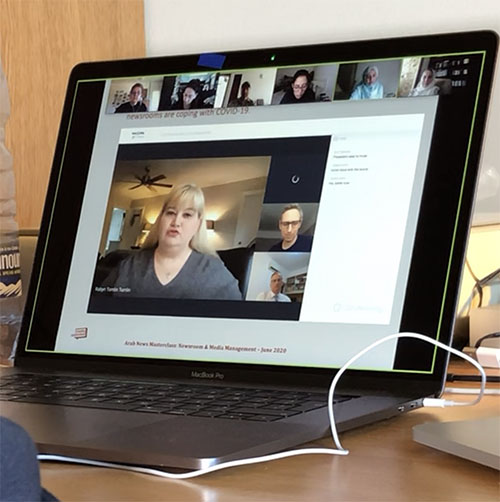
Trainees view video of World Editors Forum webinar on working from home during the Covid-19 crisis
The masterclass focused on how the pandemic has disrupted digital workflows that are being reconfigured for distributed teams, with traditional news desks becoming distributed news hubs.
Abu-Fadil shared an illustration of distributed newsroom teams with the different hubs mapped out, a more detailed diagram with the communication channels added between teams, and then asked the trainees to build their own Arab News framework on a plain template based on the model they saw.
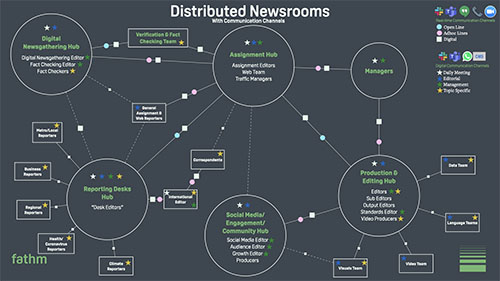
Fathm’s template of a distributed structure with communications channels
In another segment she stressed the importance of leadership in unsettled times of scattered energies and cross-border editorial functions while working from home.
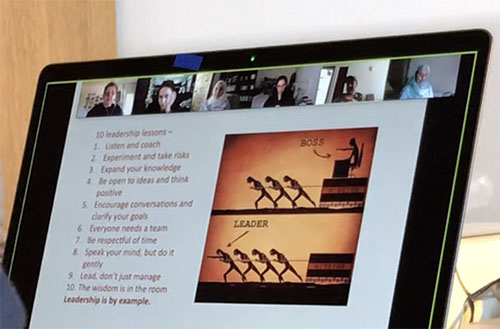
Lessons in newsroom leadership
Abu-Fadil tackled the issue of editorial content from the paper’s own reporters as well as various information providers, including crowdsourced news, and said the journalists should be ethical when publishing material shared on other platforms.
She made the case for regular training and went through the different scenarios available to distributed newsrooms to keep staffers up to speed. She also examined training tools available to media organizations.
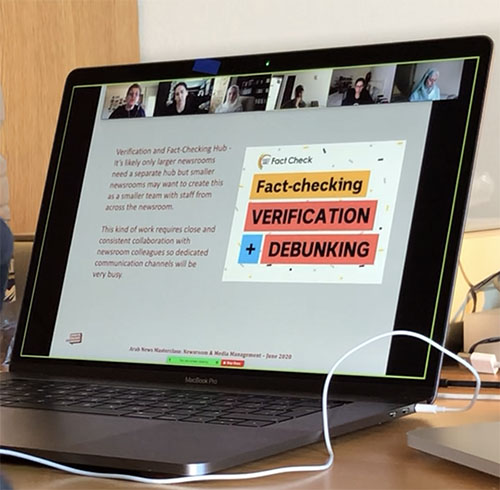
Abu-Fadil urged “Arab News” managers to set up a verification and fact-checking hub
Another key element is audience engagement, to which Abu-Fadil said her charges should give more attention, adding that they need staff dedicated to acknowledging public interactions and answering user questions.

Advice on how best to capitalize on social media
She discussed technology and tools needed for team communication and wrapped up with advice on how to avoid the pitfalls of social media excess by prioritizing quality over quantity, diversifying to meet audience needs, re-evaluating how platforms are changing, and keeping track of changes in the audience’s habits.
